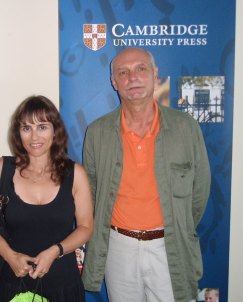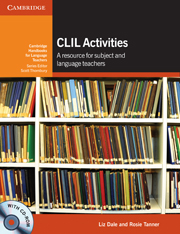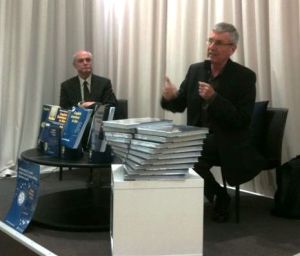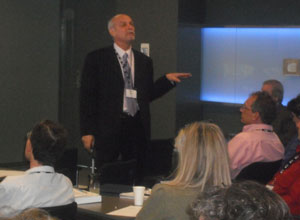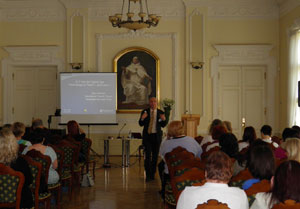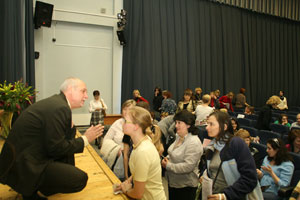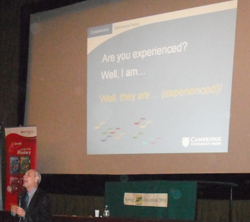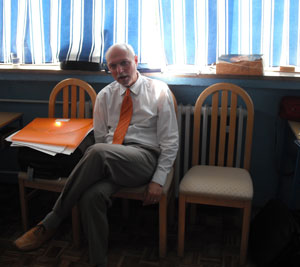‘Fly in, fly out’ trainers and important local knowledge
Earlier this month I was flying in to and then out of Yerevan in Armenia—my 6oth country on my travels for the Press (as we call Cambridge University Press in-house)— and it got me thinking about, well, ‘fly in, fly out’ trainers such as myself.
I imagine you’ve run across that term before and have taken part in one-hour presentations, half-day workshops or perhaps even one- or two- day training sessions given by trainers from outside your country who, let’s be honest, often at the beginning don’t really know that much about the challenges (yes) and joys (hopefully) of your specific teaching situation. Now, there’s probably something to be said for international trainers from abroad: a wider scope, better knowledge of the materials that they are talking about, wide experience of teaching cultures etc. But there are of course equally or more important things for us to learn from you and your colleagues as local experts who know your own country, language, learners, Ministry of Education or in-house institutional requirements.
Anyway, back to Yerevan: The events took place in the ball room of a hotel which had been converted into a conference room with a small, low stage in the middle of the room for me and my computer, with chairs around on all sides for the teachers and with two screens on the larger walls of the room for my PowerPoint slides. My first experience of presenting in a ‘theatre-in-the-round’ set-up! I gave four talks over two days on Cambridge English exams, ESP courses, on English in Mind for teaching teenagers and English Unlimited for teaching adults.
And as always it was nice after the talks when teachers came up to thank me and, as often happens, say that ‘it’s so nice to hear a native speaker’. But nicer still is when they/you ask questions, agree or disagree with certain points, or comment on their/your own individual teaching situations. Like one teacher in Yerevan whose university language programme is equipped with Interactive Whiteboards and is changing coursebooks and who asked me to explain more about English Unlimited Classware and how it works.
So, please, when you ever attend one of my (or another trainer’s from abroad) presentations, do speak out or come up and share your important local knowledge.
Off to Kazakhstan this week to a Young Learners conference in Astana to present the local version of Primary Colours—and where I’ll have a full day to interact with the teachers and get to know them and their local conditions and specific teaching situation better before I, well, fly out.
What important piece of local knowledge would you give me if I were visiting your country?
Gary Anderson, Cambridge ELT International Teacher Trainer




 Posted by internationalteachertrainer
Posted by internationalteachertrainer 